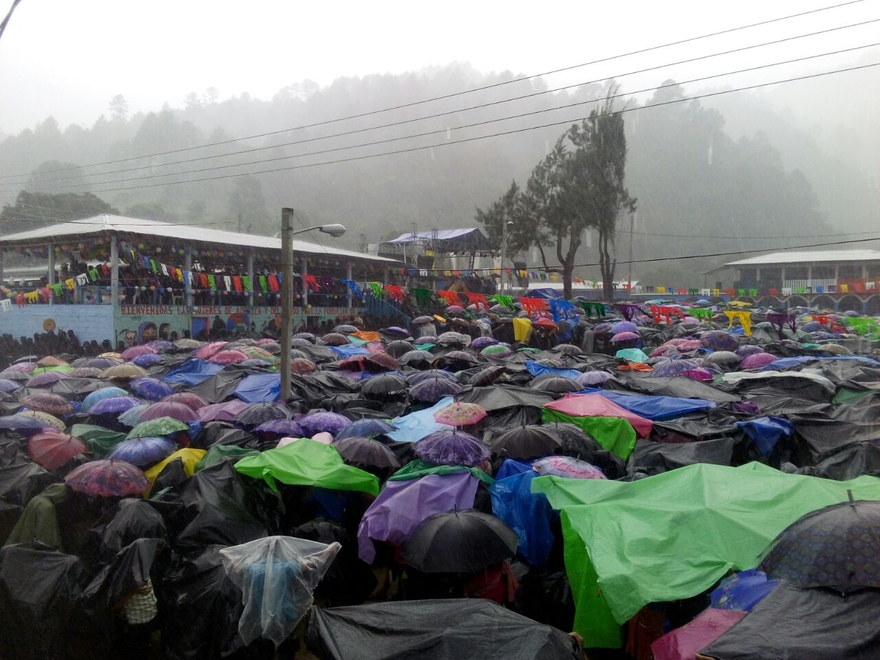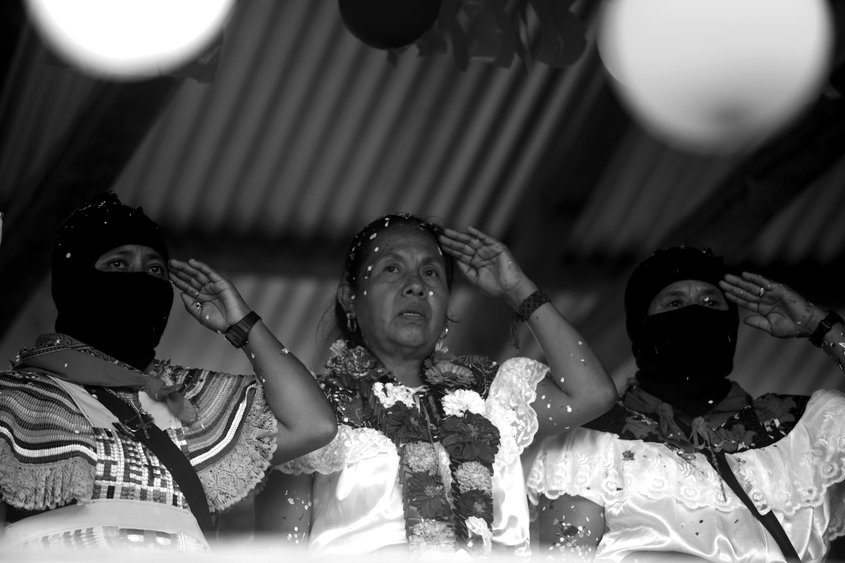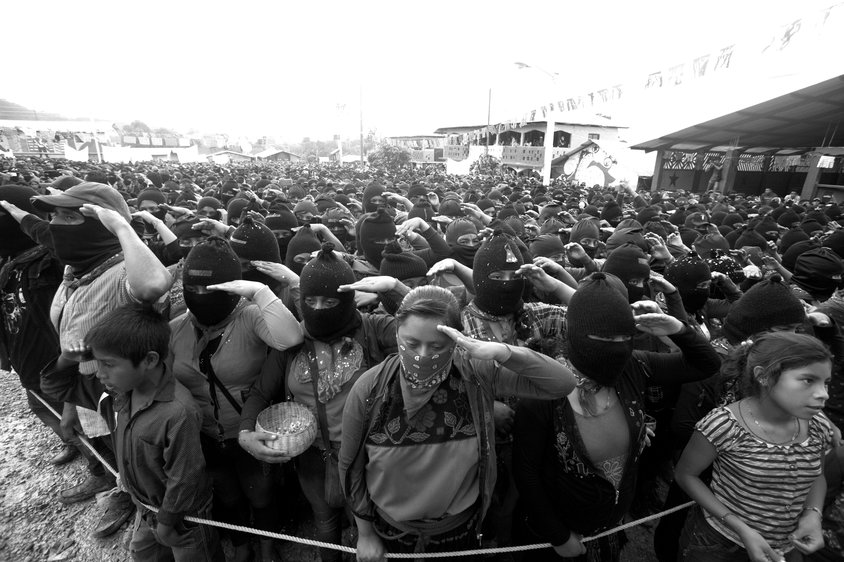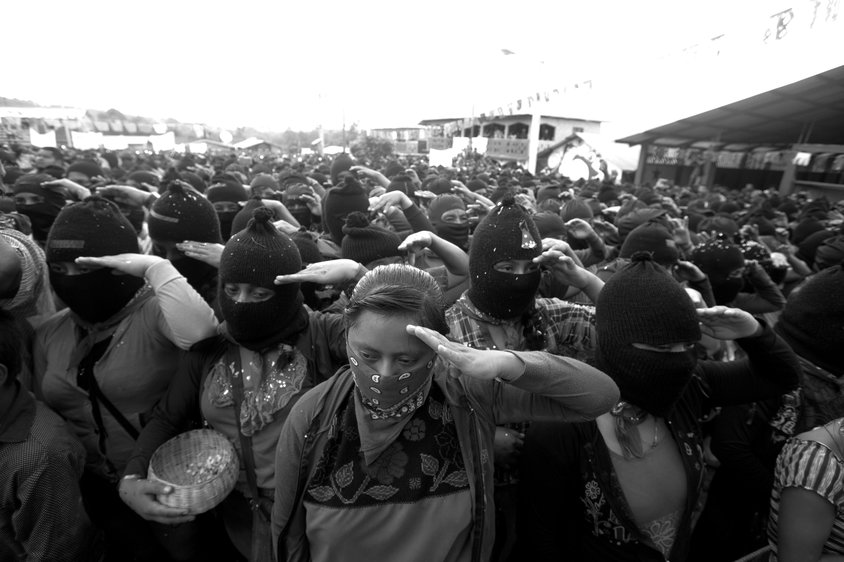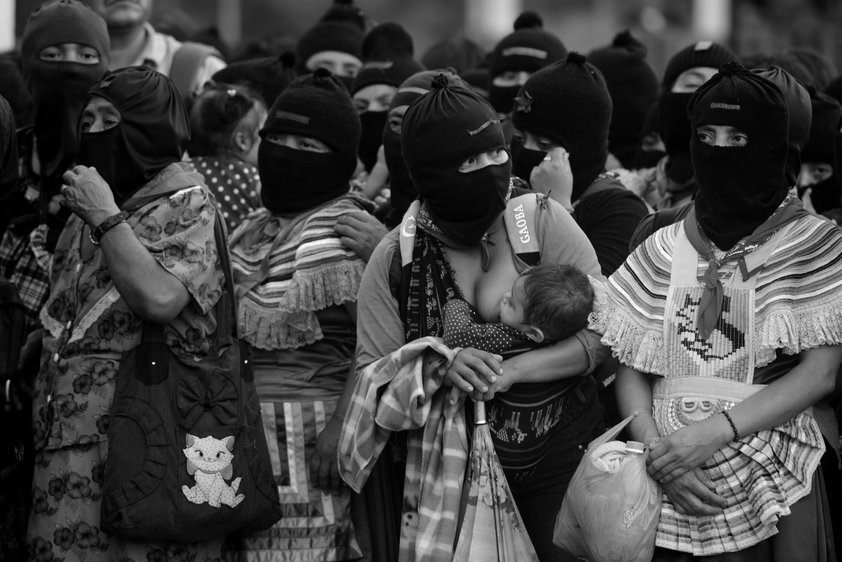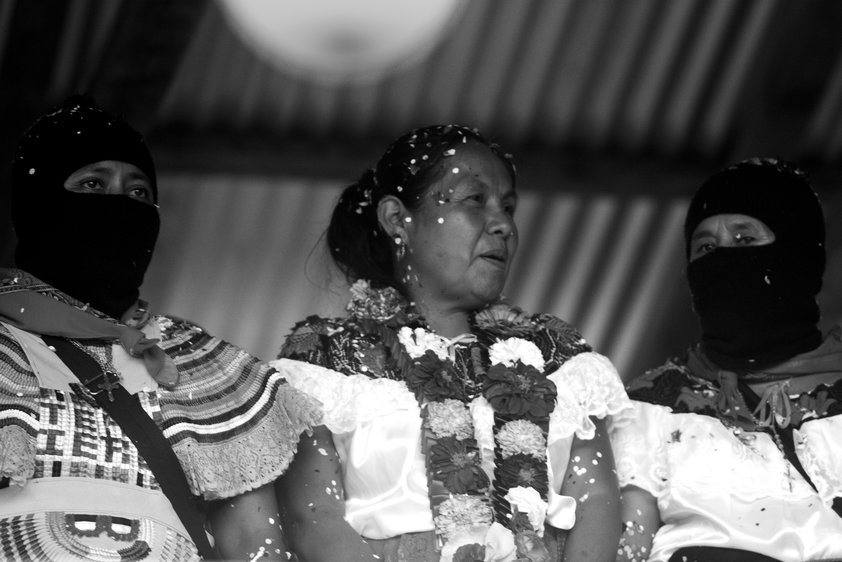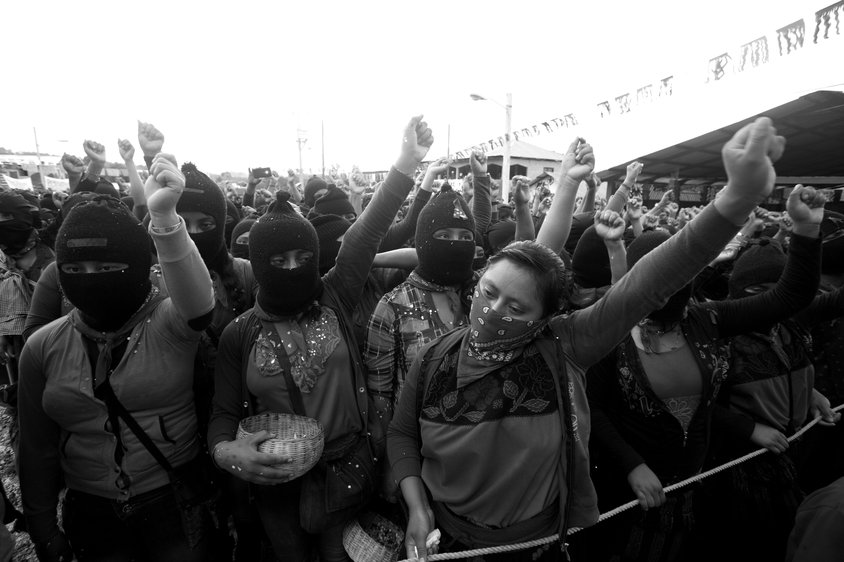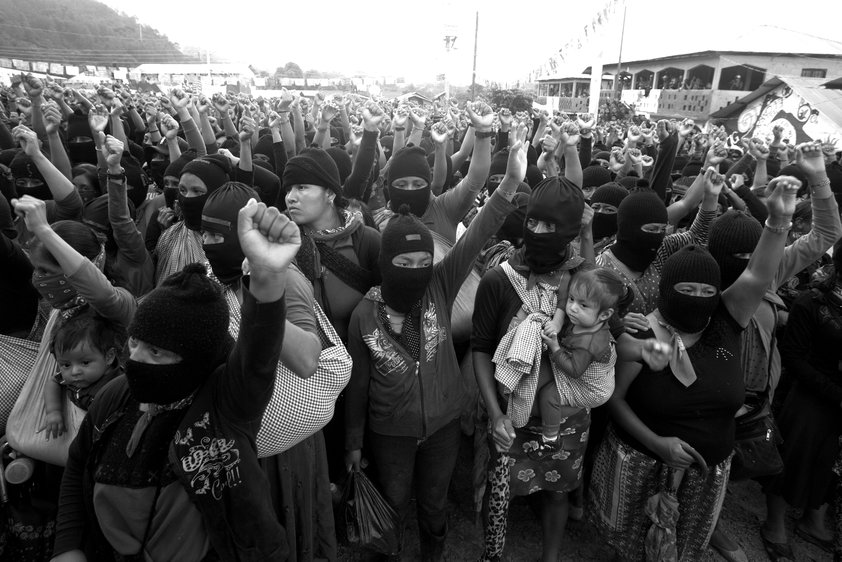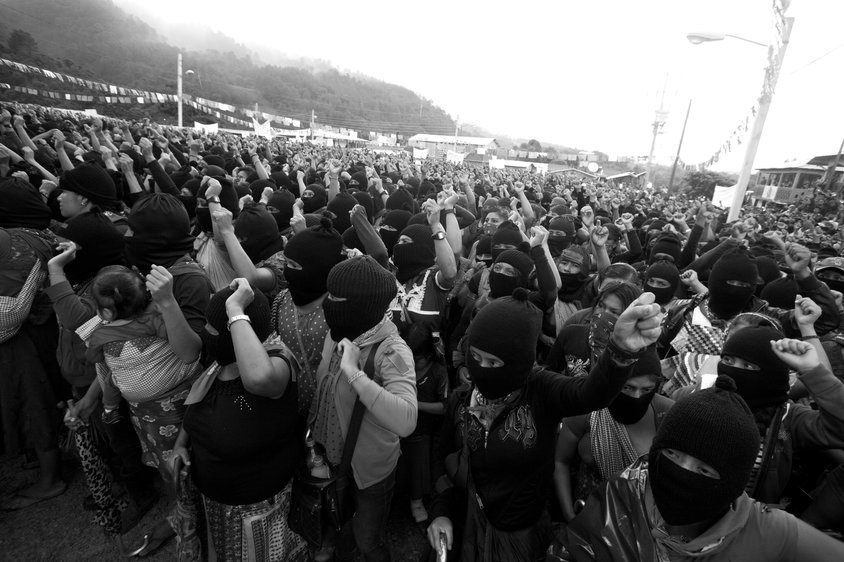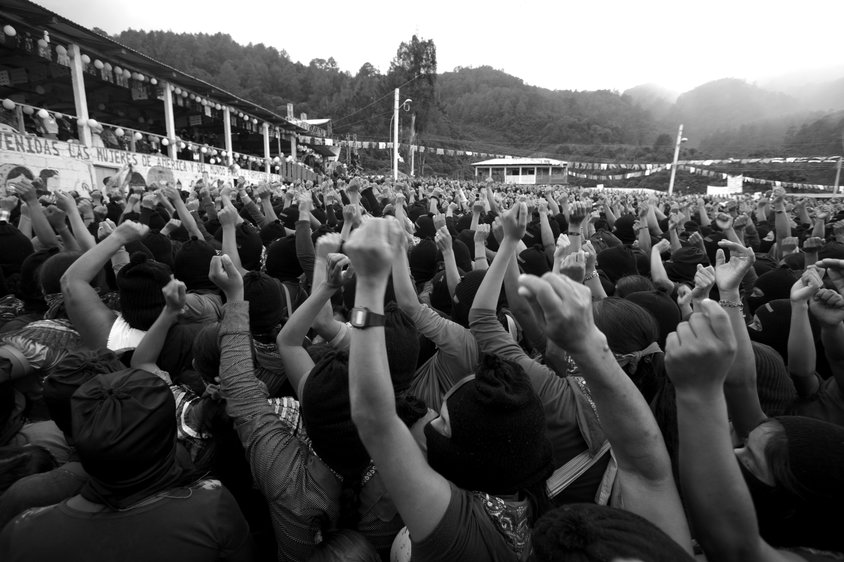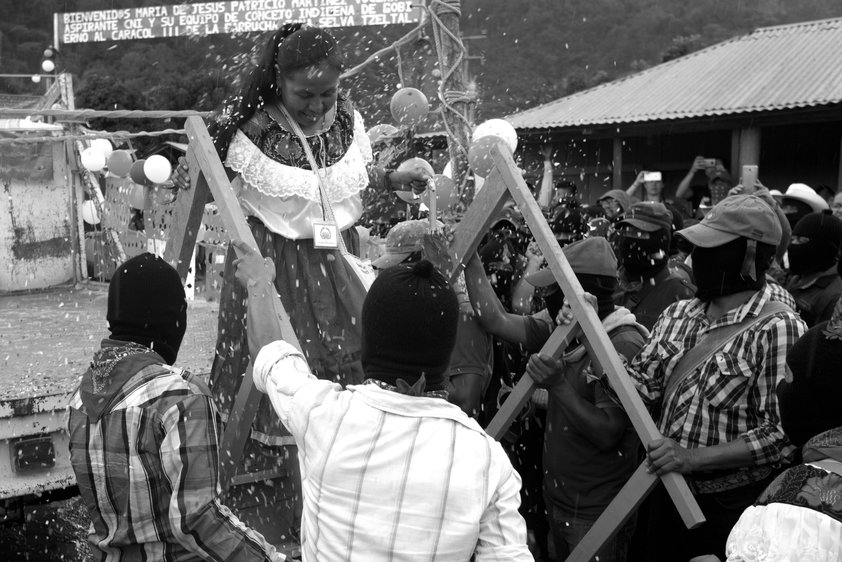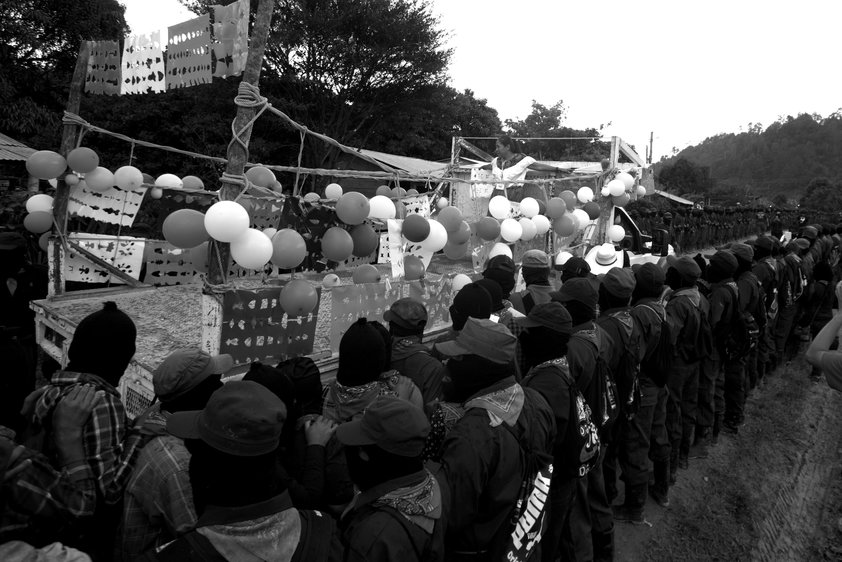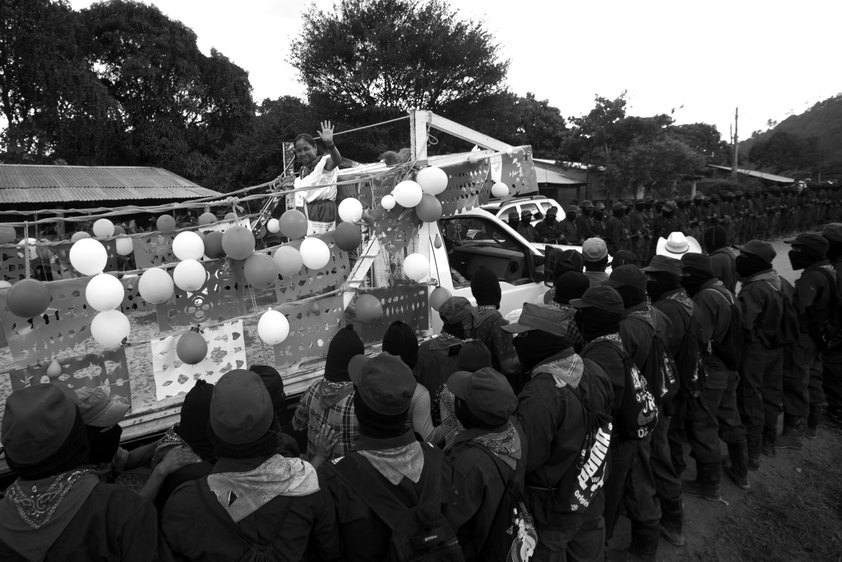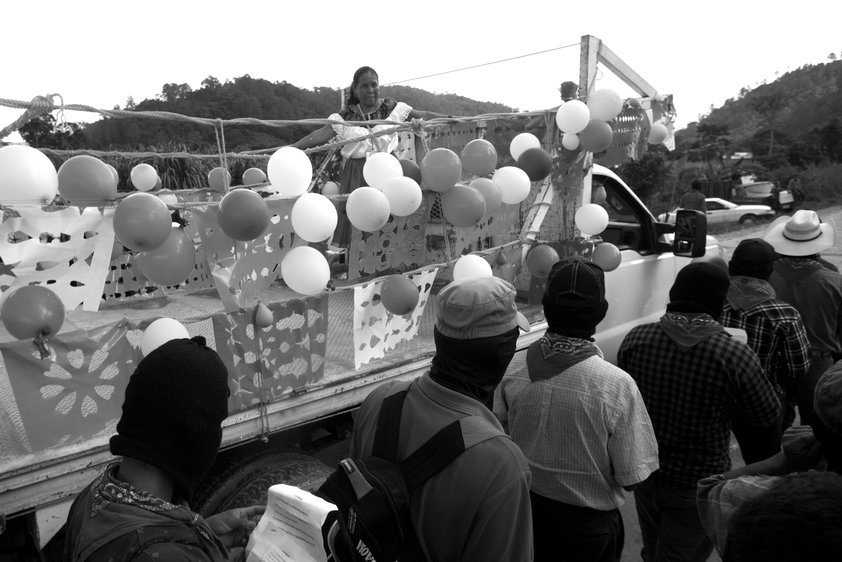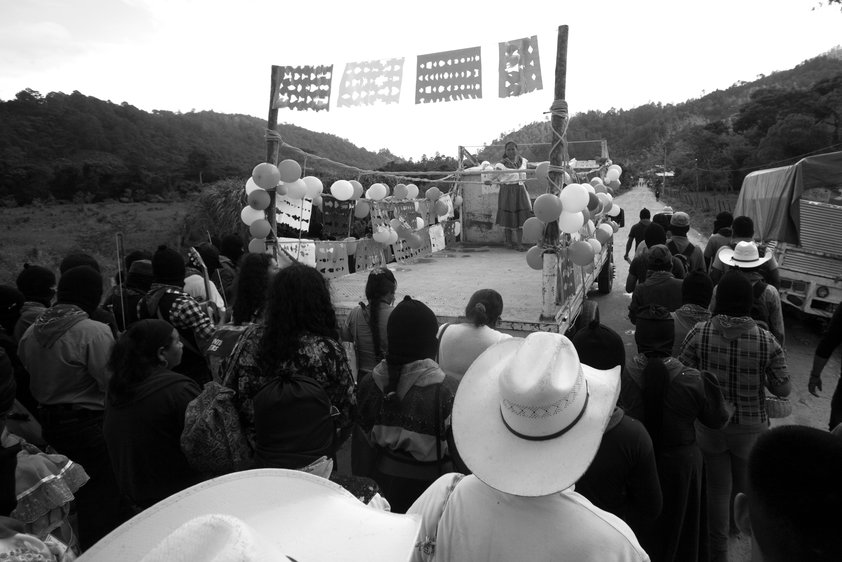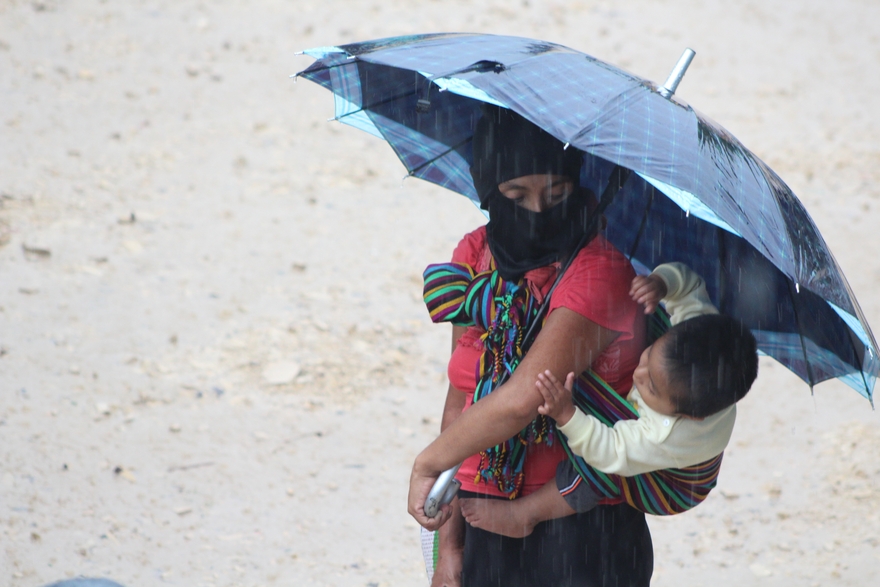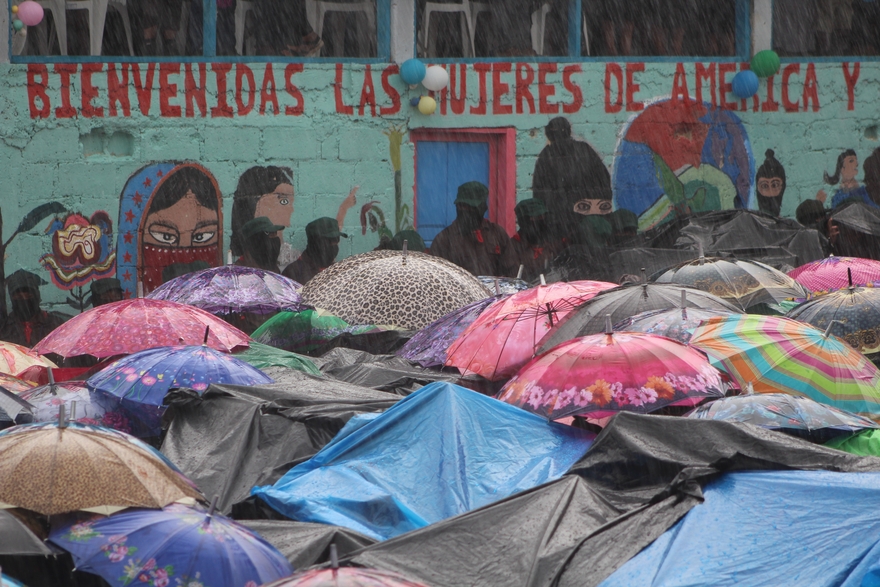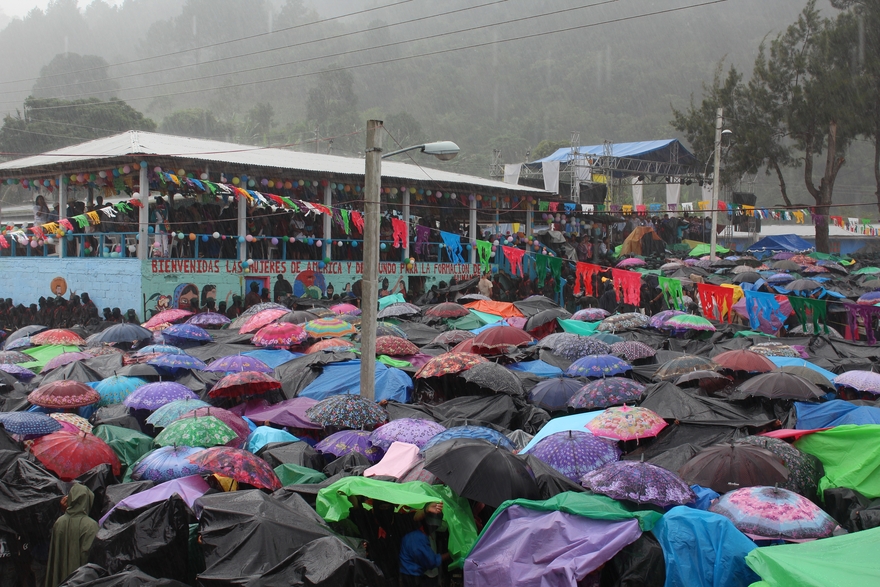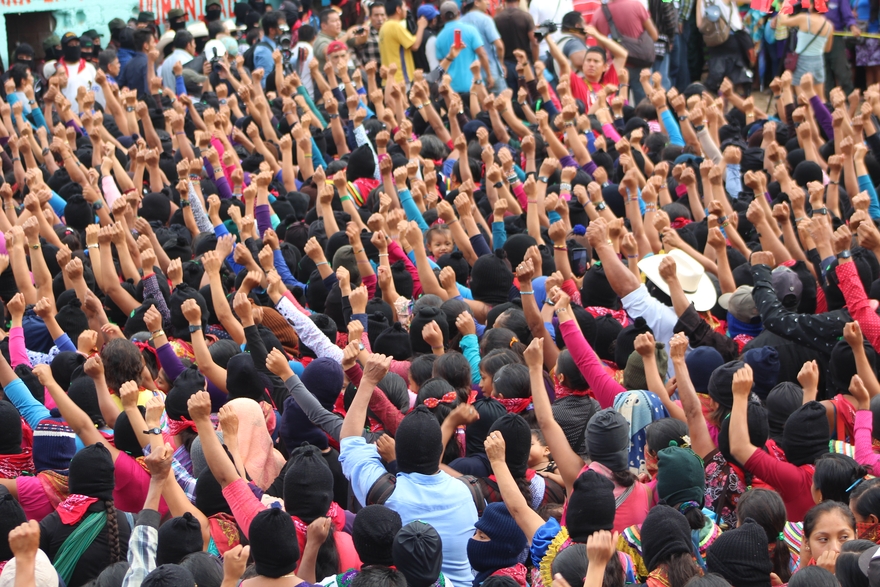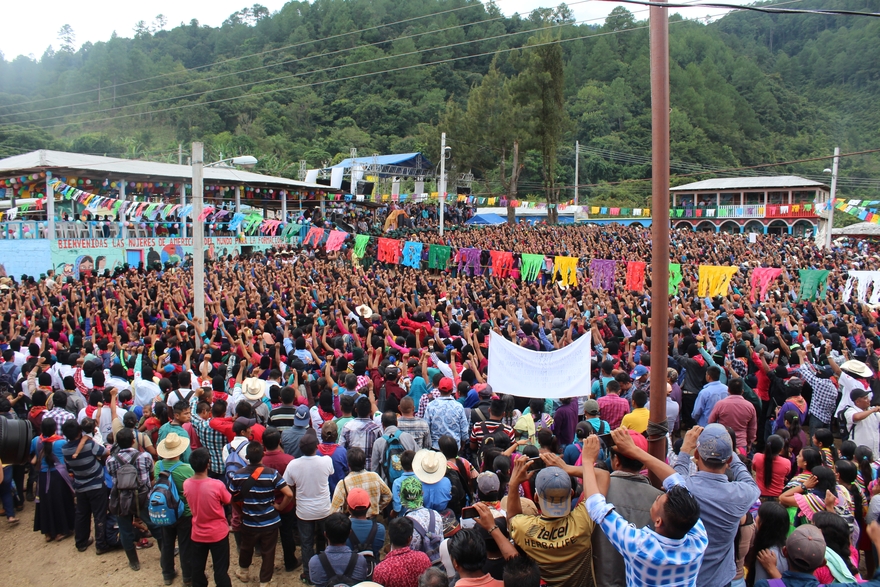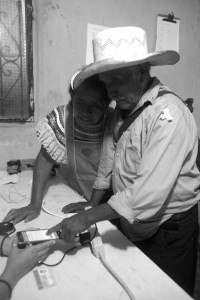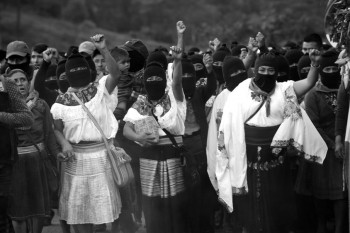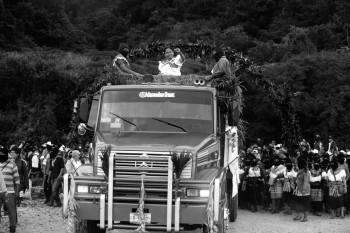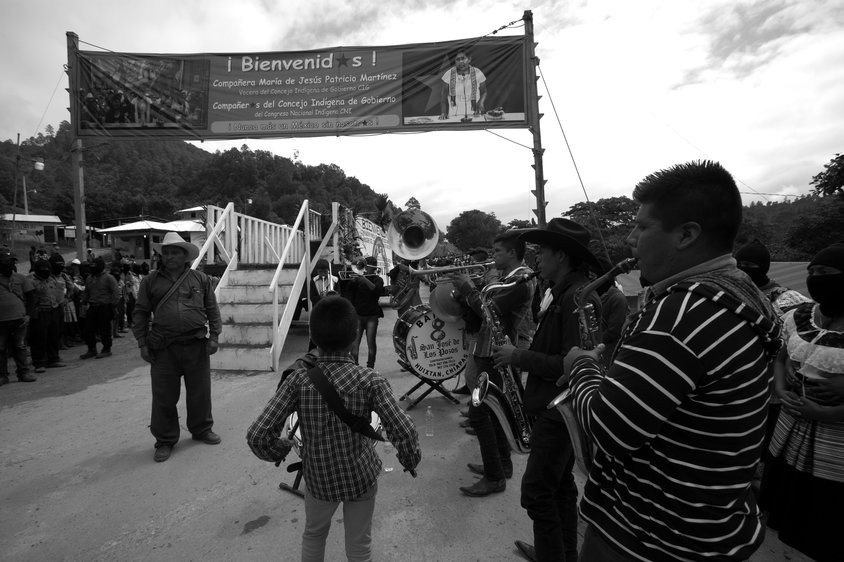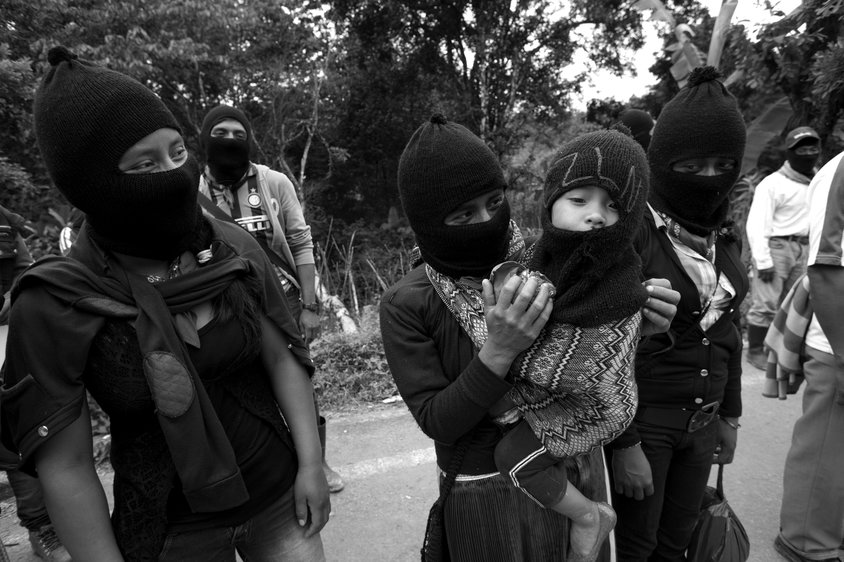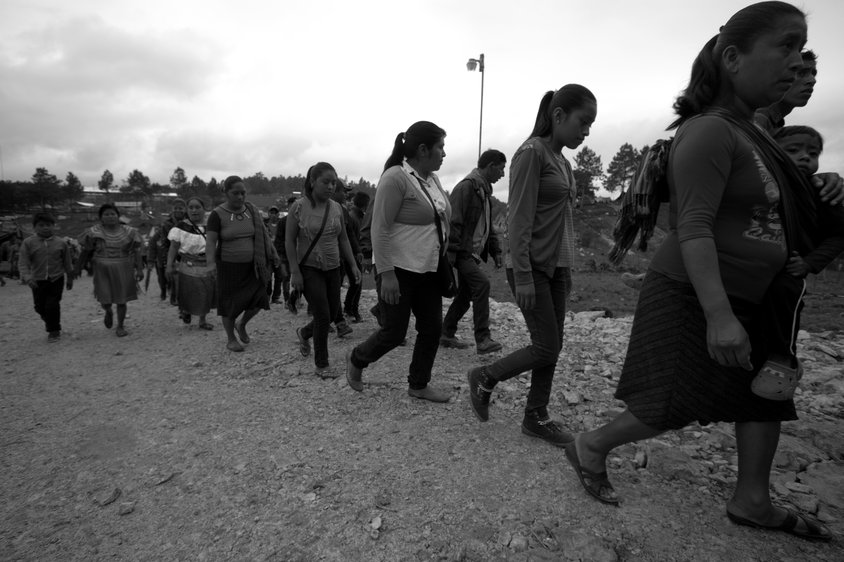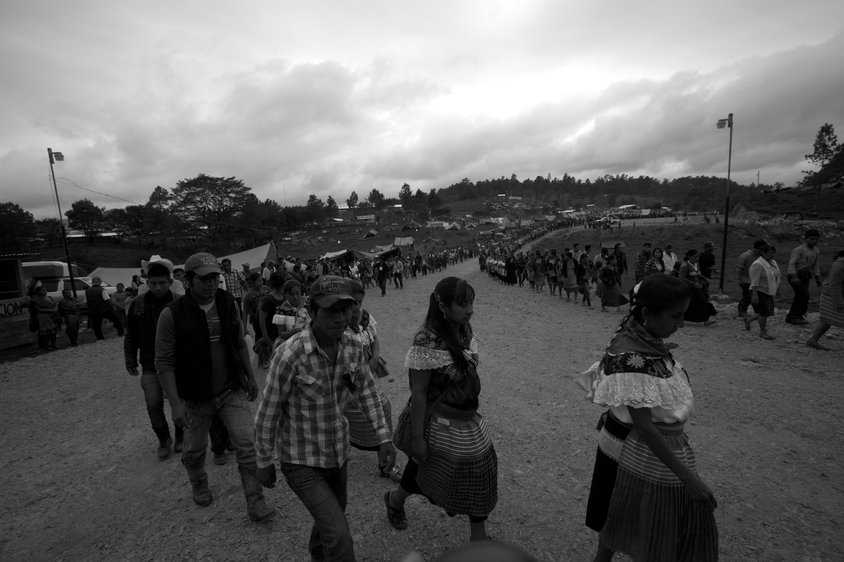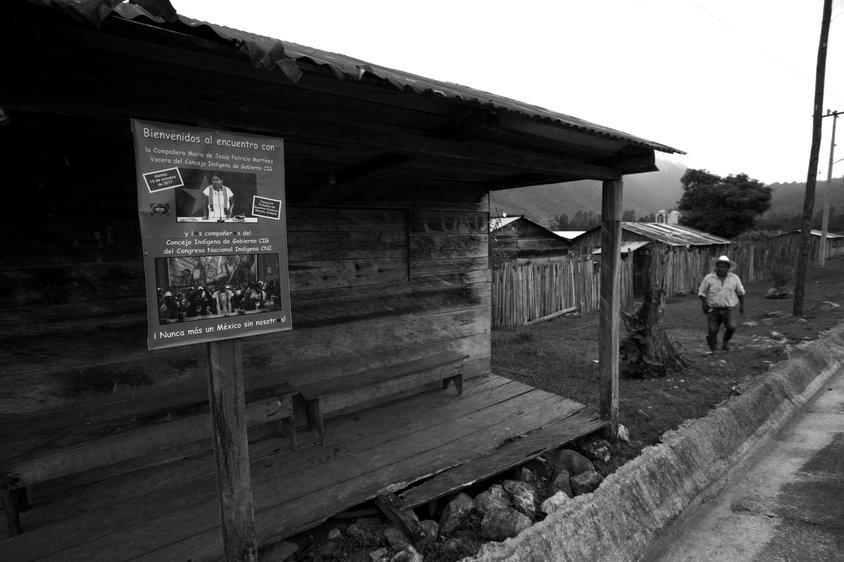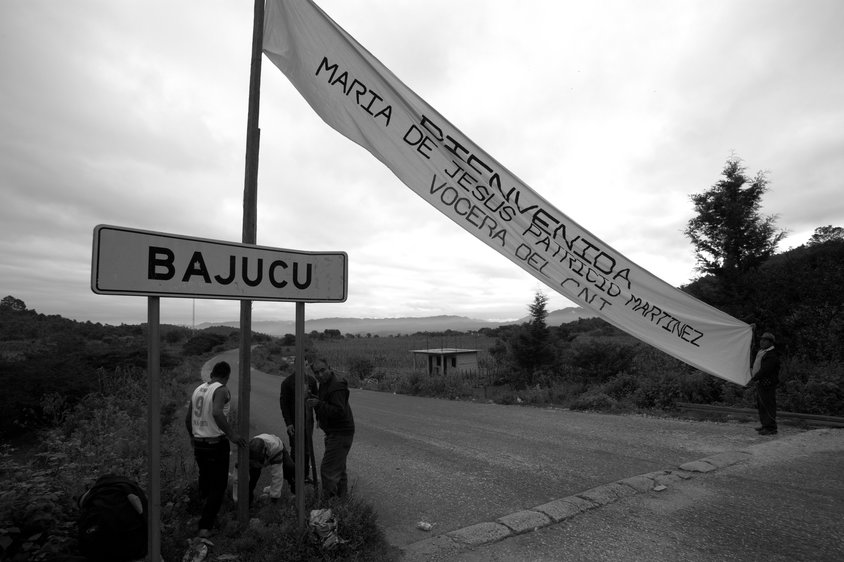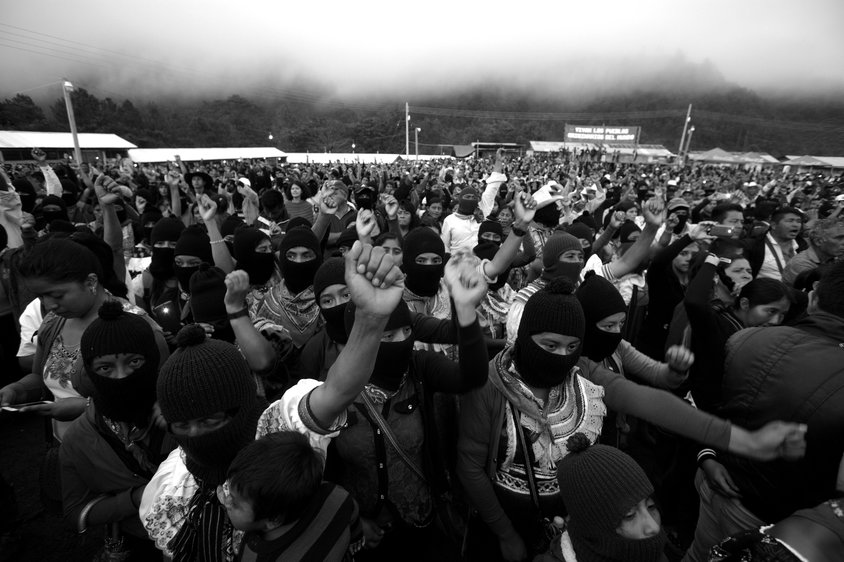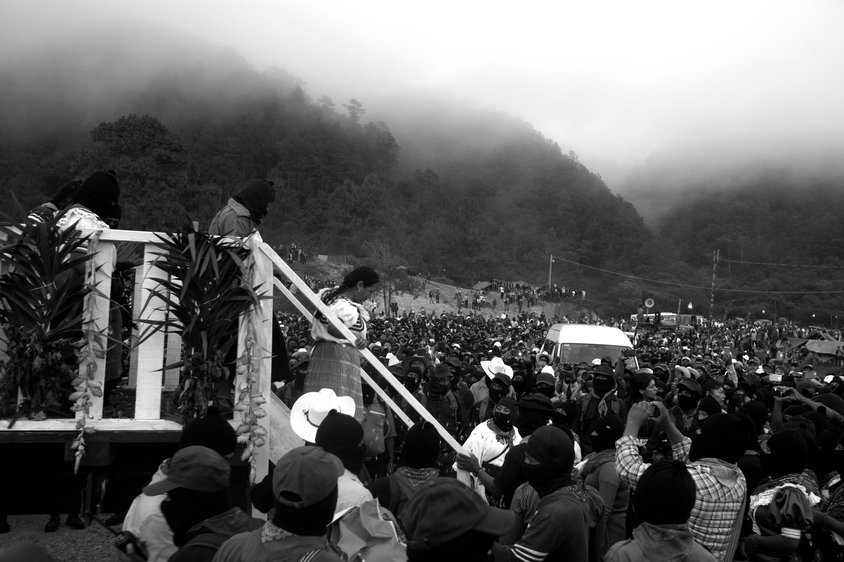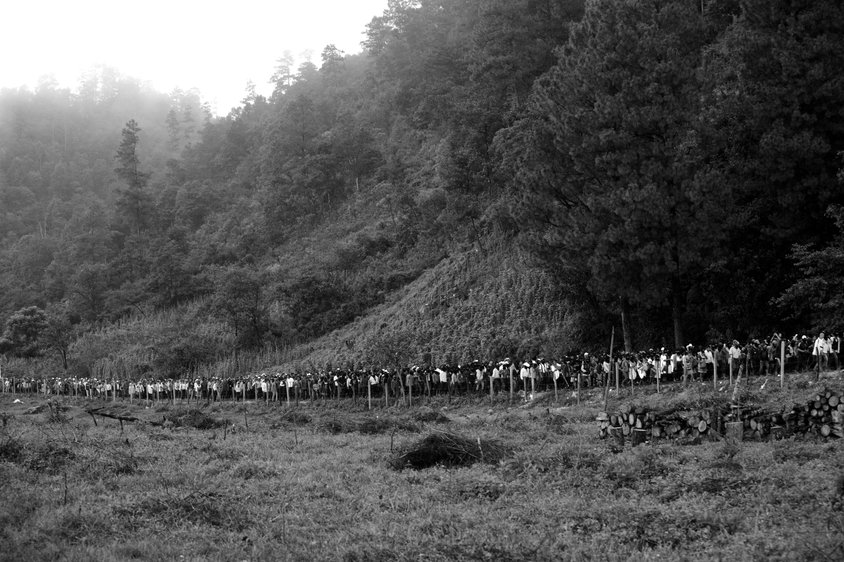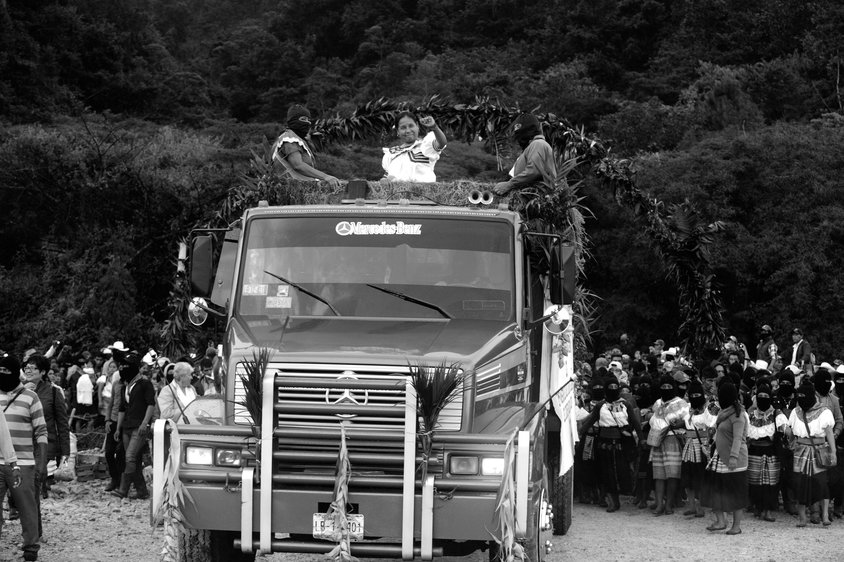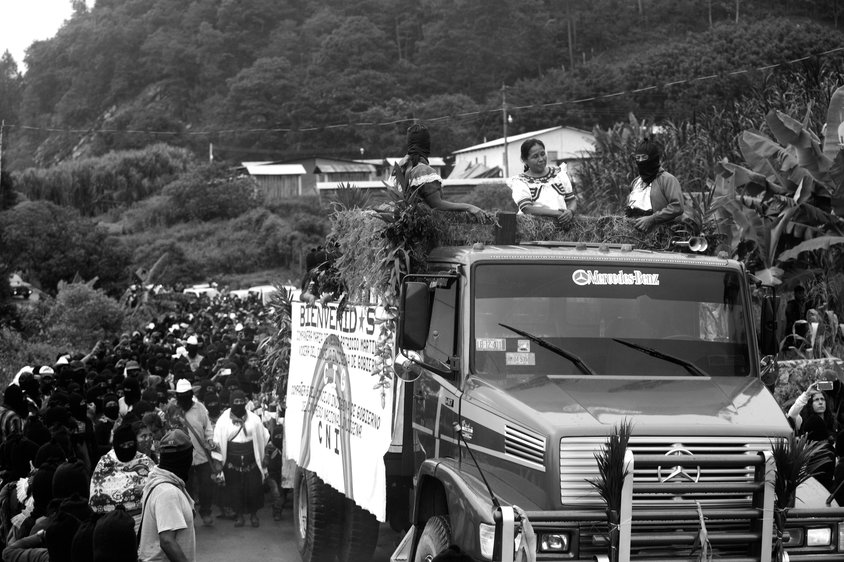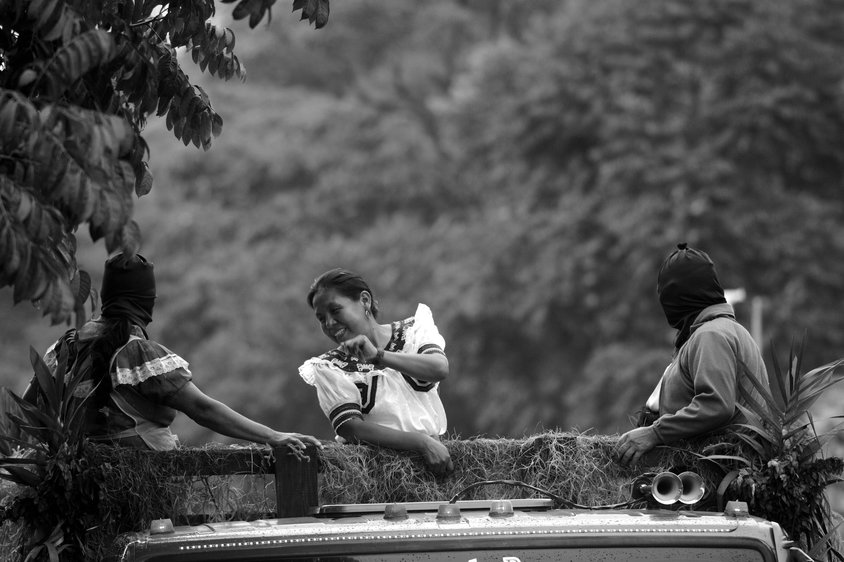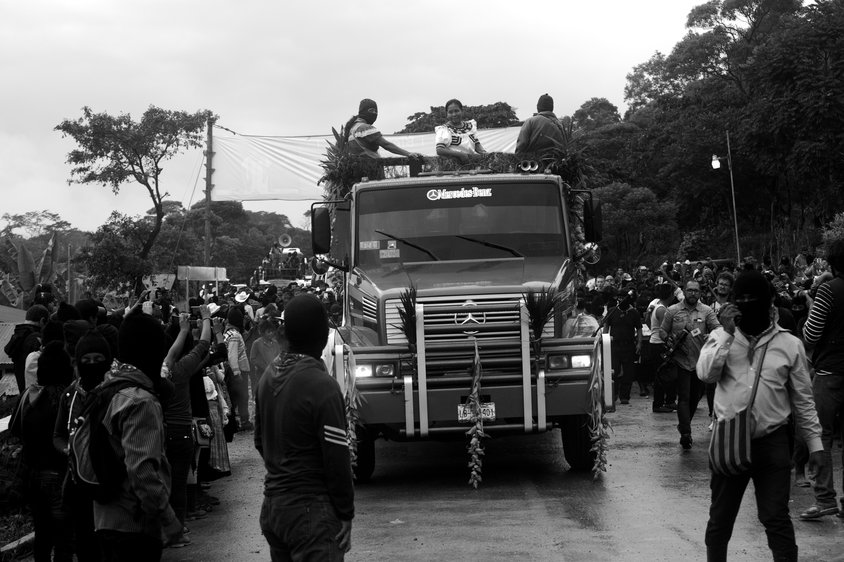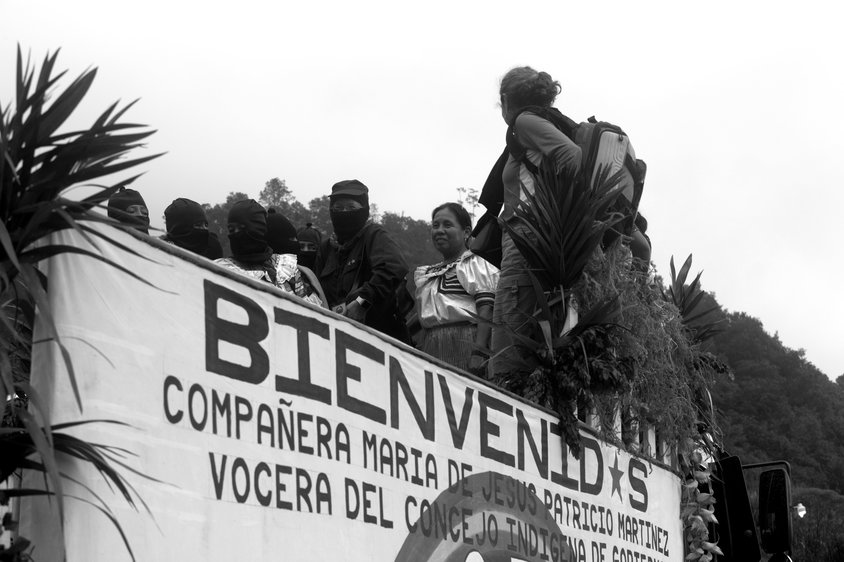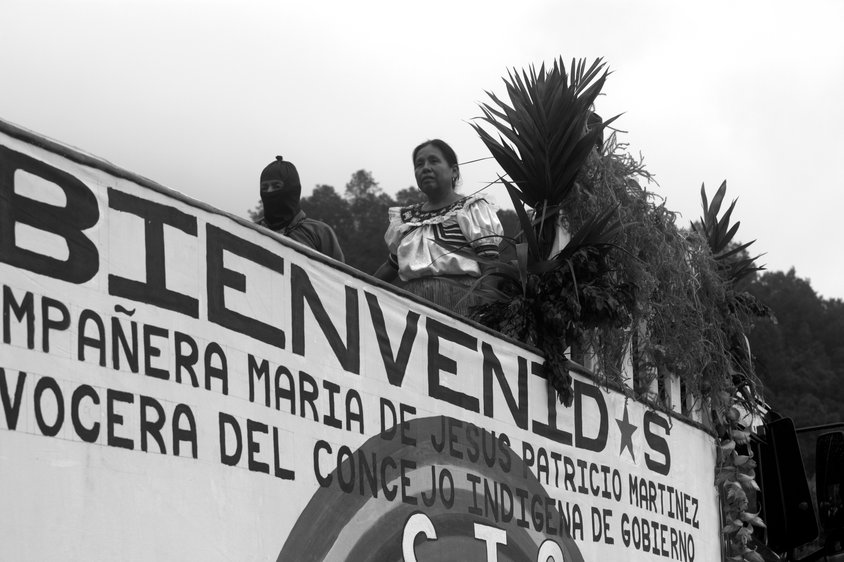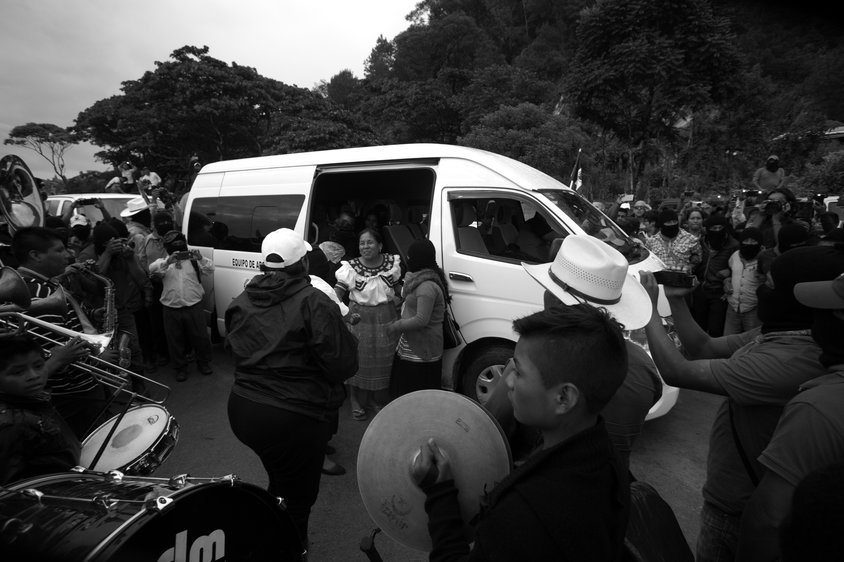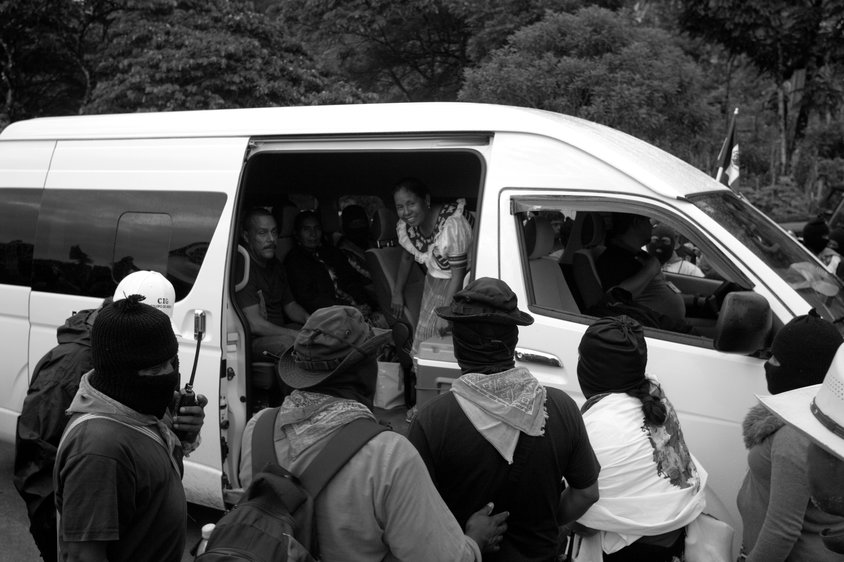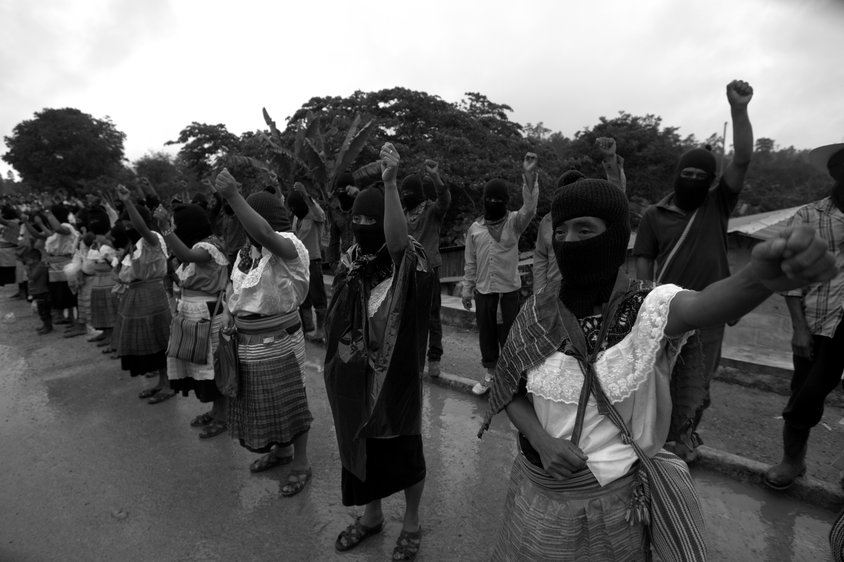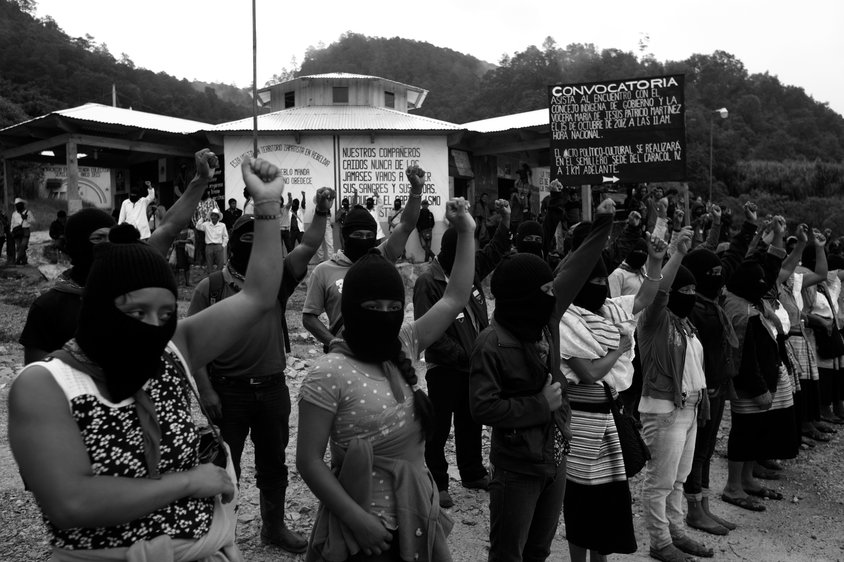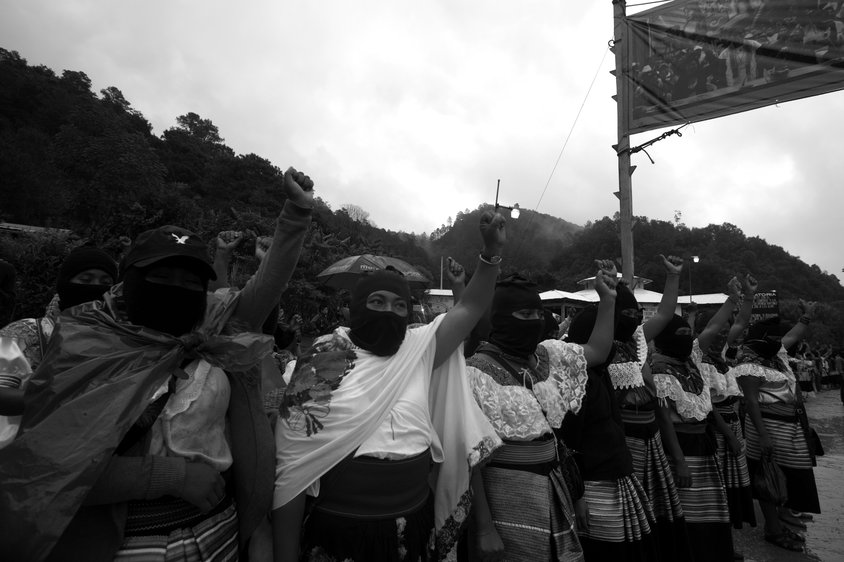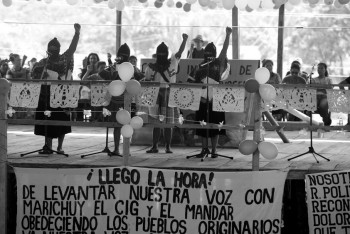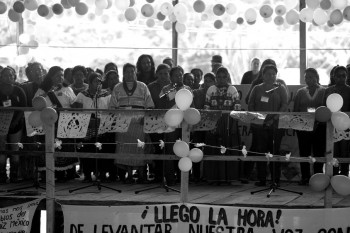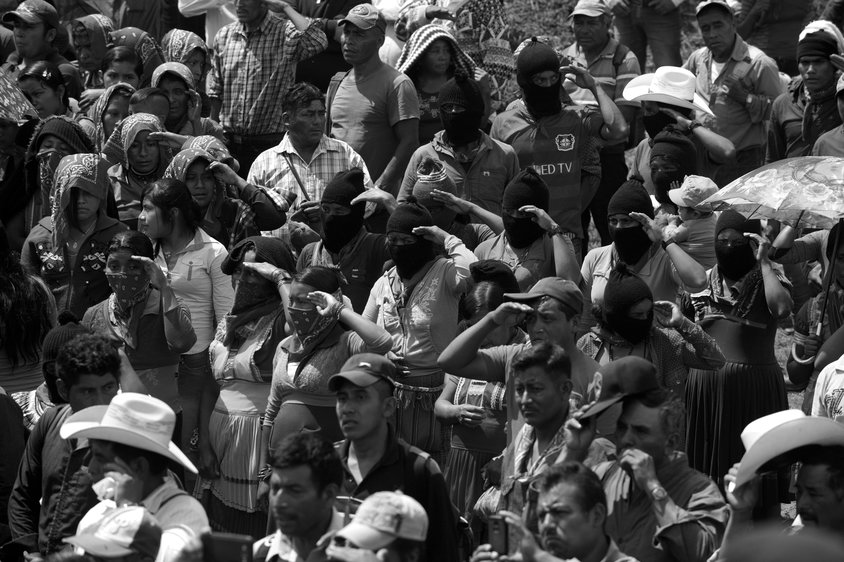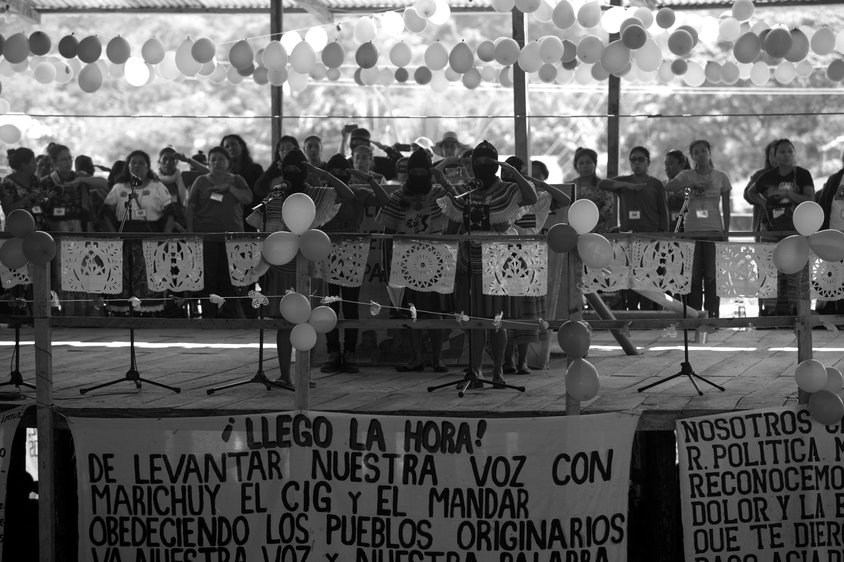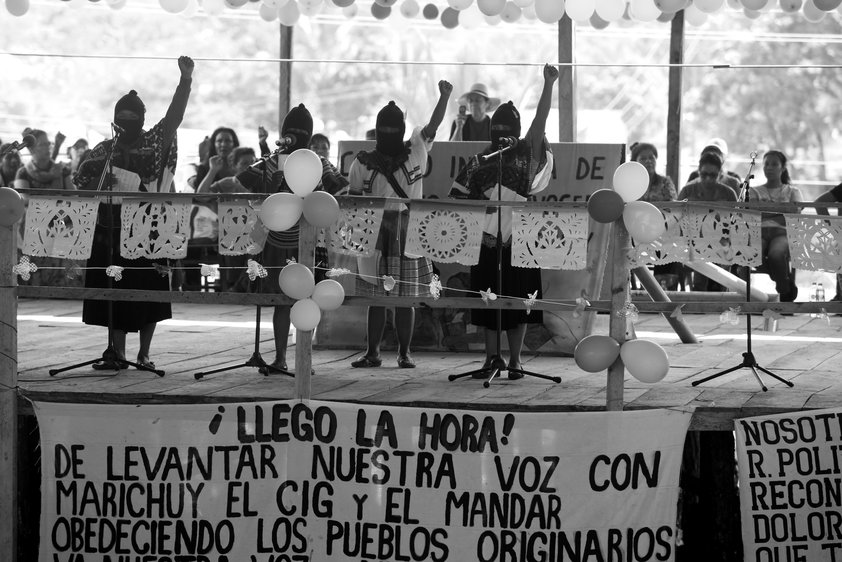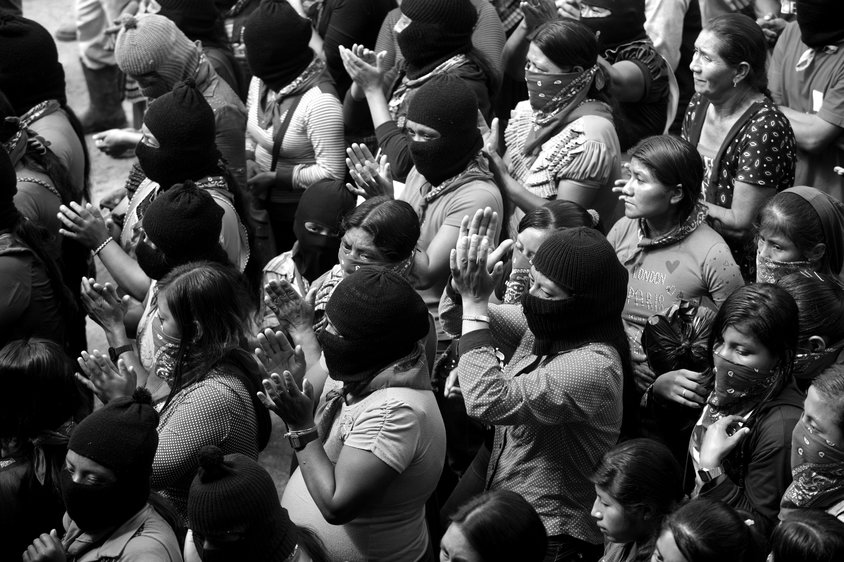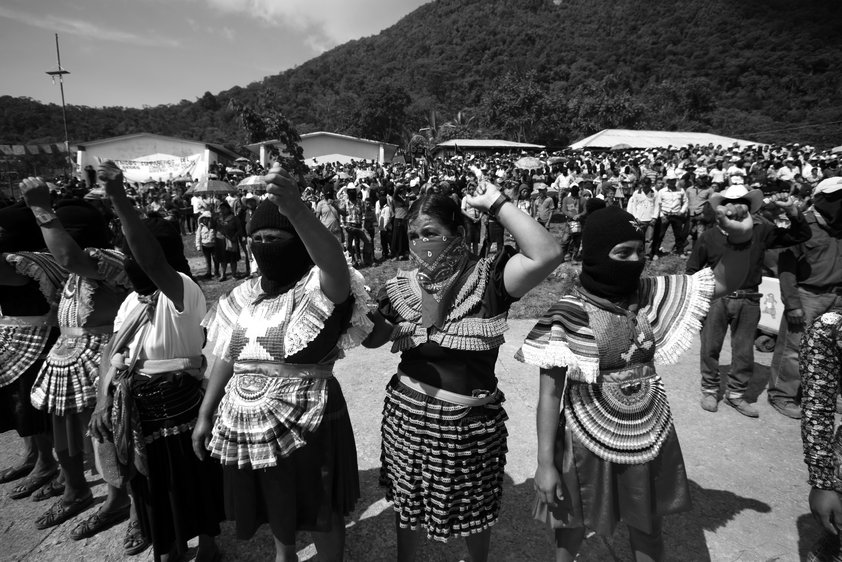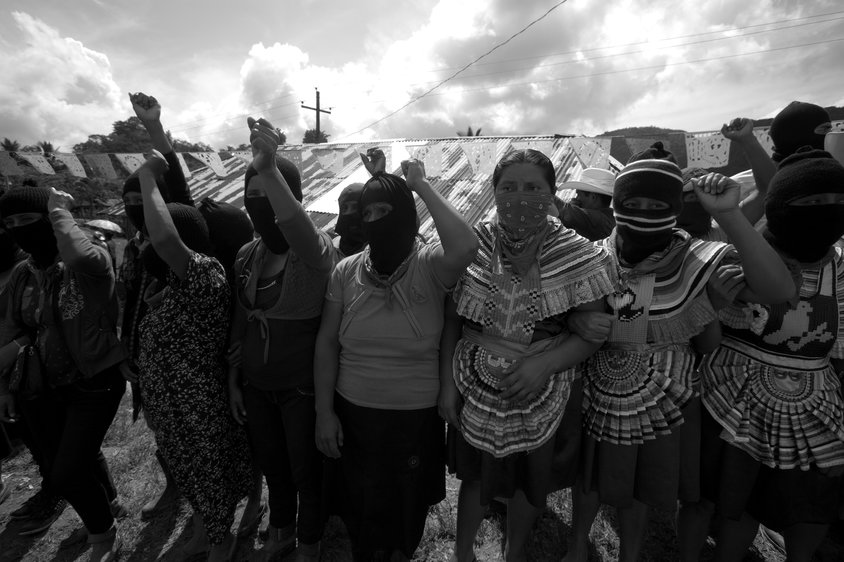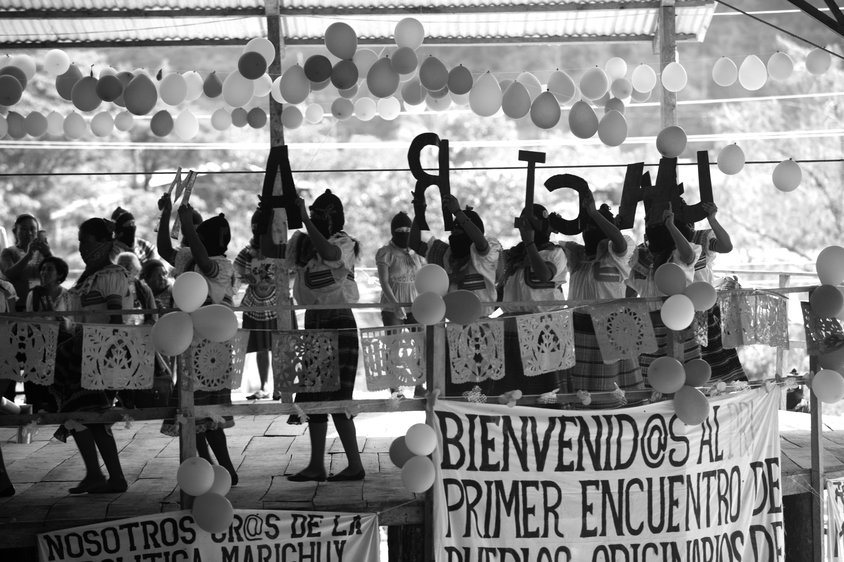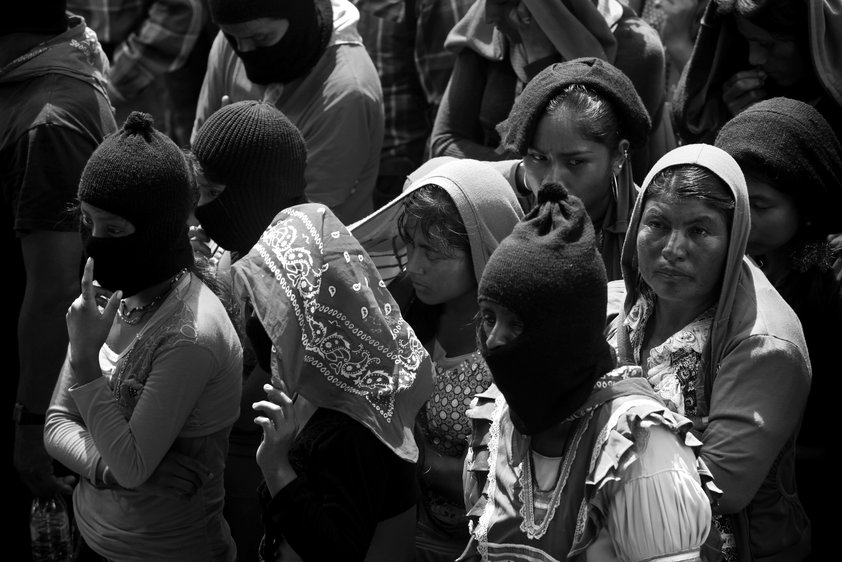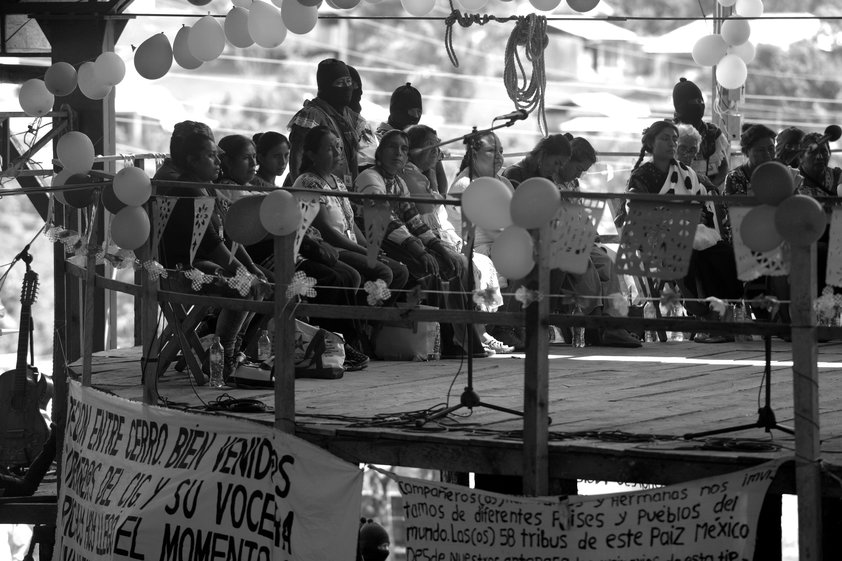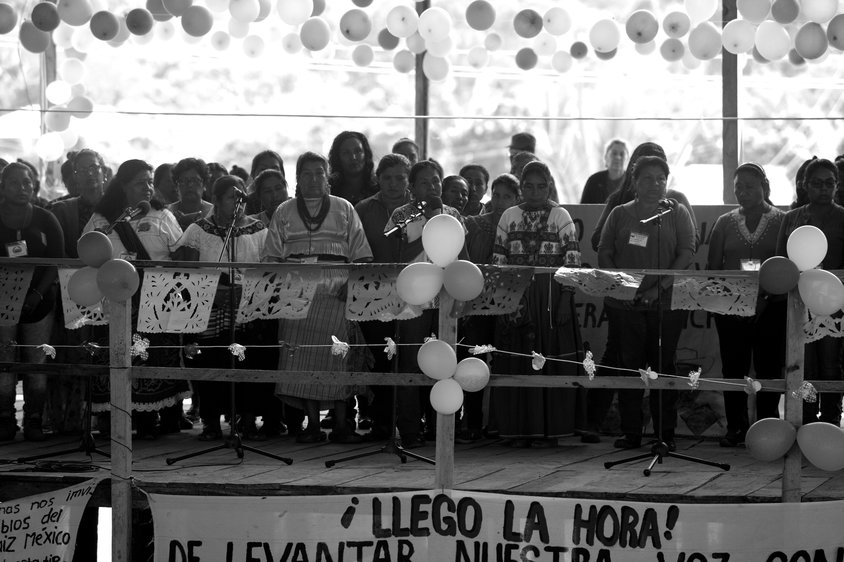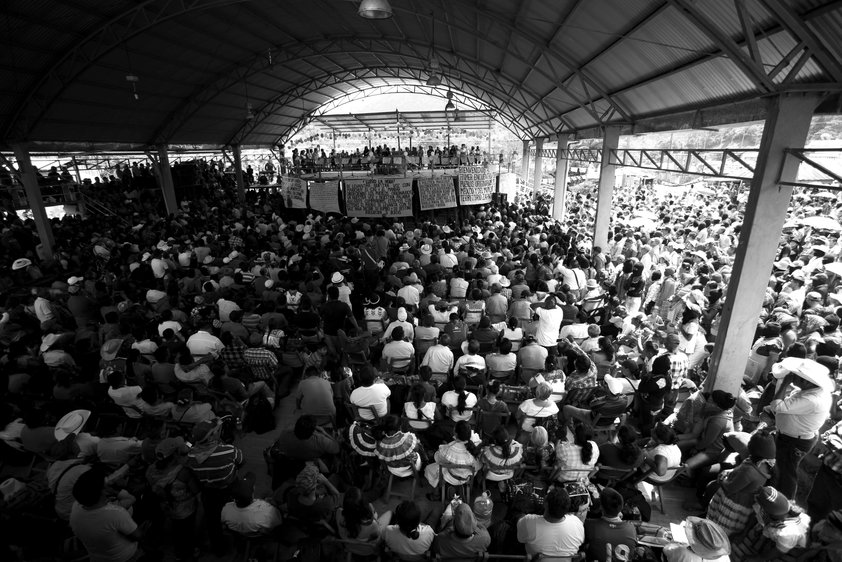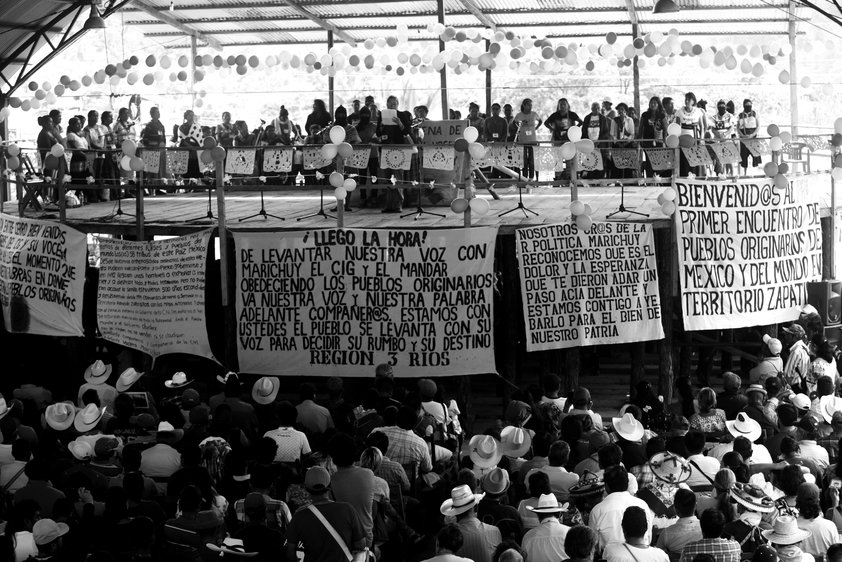
Chiapas
(Español) Palabras de la Comandanta Amada, de María de Jesús Patricio Matínez y de las compañeras Jacqueline, Valentina y Alejandra en Palenque
- Palabras de la Comandanta Amada a nombre del CCRI-CG del EZLN del Caracol V “Que habla para todos”, Zona Norte
- Palabras de Valentina a nombre del CCRI-CG del EZLN del Caracol V “Que habla para todos”, Zona Norte
- Palabras de María de Jesús Patricio Martínez
- Palabras de Alejandra a nombre de la Junta de Buen Gobierno “Nueva semilla que va a producir”, del Caracol V, Zona Norte
- Palabras de bienvenida de Jaqueline a nombre del Comité Clandestino Revolucionario Indígena del Caracol V, Zona Norte
Palabras de la Comandanta Amada a nombre del CCRI-CG del EZLN del Caracol V “Que habla para todos”, Zona Norte, en el acto político cultural realizado en Palenque el 18 de octubre de 2017
Escucha aquí: [podcast]https://radiozapatista.org/Audios/CIG2017_palenque_12.mp3[/podcast]
Compañera@s bases de apoyo del Ejército Zapatista de Liberación Nacional.
Compañer@s de la Sexta nacional e internacional.
Compañer@s del Congreso Nacional Indígena.
A la compañera vocera María de Jesús Patricio Martínez.
Al Concejo Indígena de Gobierno.
A los compañer@s concejales de los diferentes estados de la república.
A los medios libres, alternativos, autónomos o como se llamen.
A la prensa nacional e internacional.
A la prensa de paga.
A los diferentes sectores de México y el mundo.
Al pueblo de Palenque, territorio de pueblos originarios mayas.
Lo que va a pasar en nuestro país y el mundo
Con las reformas estructurales que el mal gobierno reformó es con la finalidad de privatizar todo, porque toda nuestra riqueza natural lo vendió con empresas extranjeras con pretexto de crear empleos y tener buen desarrollo en nuestro país. Lo que va pasar en este país si no nos organizamos nos van acabar con el aire, la tierra, el agua, los minerales, los bosques, los animales y los seres humanos, nos van a destruir, nos van dejar en algo irreparable, nos va a arrasar con la tormenta. No va a haber trabajo , no va a haber alimentación, no va a haber empleo, nos van a dejar la naturaleza destruido, la tierra quedará estéril, no habrá vida, no habrá futuro, nos van a desaparecer. Por eso tenemos que luchar para defender la madre de todos que es la madre tierra, luchemos por las miles y millones de vidas que existen y están por nacer en este mundo, no nos encerremos en resignaciones, ni en conformismos que el sistema nos oferta para mantener el poder político, ideológico, económico, social, psicológico y cultural.
El mal sistema su base principal es el dinero para seguir controlando al pueblo, porque ya no encuentran otra forma de mantenerse en el poder, para nosotros la gente de abajo el dinero no es la fuente de vida, luchamos no sólo por nuestro país, nuestra lucha es por la humanidad mundial, el arma del poder es dividirnos y pelearnos entre nosotros los pobres, con los diferentes partidos políticos que abusan nuestros pueblos por falta de información, existen medios pero están controlados por el mal sistema no informan la verdad, cuando algunos medios informan la verdad son secuestrados, torturados y asesinado, se exige justicia nadie los protege, porque todas las autoridades se vende y sale ganando el que tiene dinero. Entre ellos está el narco, el narco órgano y narcogobiernos, ellos nadie les hace nada, porque son los que financian los gobiernos, los jueces y los partidos políticos en tiempos electorales, hacen creer al pueblo que van hacer el cambio por medio de la democracia, pero en realidad los partidos políticos no son los que van a dar el cambio, porque son ellos mismos que han saqueado el país, ellos han entregado el patrimonio de la nación, son una cúpula de personas de los partidos políticos que aprueban leyes detrás de los pueblos.
Les preguntamos al público en general ¿por qué un pequeño grupo de personas holgazanes, buitres, bestias, zánganos, nos vienen a mandar si somos miles y millones de mexicanos trabajadores del campo y la ciudad?
Para ellos les conviene elegir personas asesinos, por ejemplo Enrique Peña Nieto, fue premiado presidente porque él fue quien mandó hacer violaciones, a golpear, a torturar y asesinar mujeres y hombres al pueblo de Atenco por sus policías, cuando era gobernador del Estado de México. Desde entonces no se ha hecho justicia porque son ellos que controlan la justicia por medio del dinero, por eso no existe la libertad, la democracia y la justicia.
Para ellos la justicia es mercancía, es negocio, pasan los tiempos y se hacen del olvidado; tenemos el ejemplo la masacre de Acteal; la muerte de niños y niñas en la guardería de ABC , en Hermosillo, Sonora; las violaciones y asesinatos de las mujeres obreras de Ciudad Juárez; los mineros atrapados en los escombros en Coahuila y los 43 desaparecidos normalistas de Ayotzinapa, entre otros. En todos estos acontecimientos no ha existido justicia.
(Español) Palabras de Marichuy en el Caracol Roberto Barrios, 17 octubre
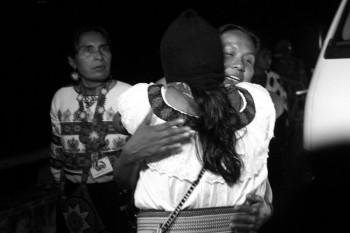
Escucha aquí: [podcast]https://radiozapatista.org/Audios/CIG2017_RobertoBarrios_07.mp3[/podcast]
Buenas noches hermanos y hermanas.
Después de escuchar a todos estos hermanos del Concejo Indígena de Gobierno y escuchar a los padres y madres de Ayotzinapa, es una realidad que está pasando, es lo que está pasando aquí en México, es lo que está pasando en nuestras comunidades, es obra del grande capitalismo que lo que quiere es despojarnos, quiere quitarnos de en medio.
Así como escuchamos ese dolor que está pasando en México, quieren que nosotros estemos aislados, que dejemos estas tierras tan preciosas que tenemos, que les demos esas riquezas que tienen nuestras tierras, que nos peleemos nosotros, que no nos unamos es lo que quieren, por eso tienen las ayudas, tienen sus programas que tienen disfrazadas para poder asegurar ese despojo, tienen todos los engaños que hacen a nuestros hijos, eso es lo que quiere el capitalismo.
Y los pueblos indígenas de México aglutinados en el Congreso Nacional Indígena dijimos que no estamos de acuerdo, junto con nuestros hermanos del Ejército Zapatista de Liberación Nacional vamos a luchar, vamos a unirnos para juntos acabar con este sistema capitalista que está acabando con nuestras comunidades, que está acabando con nuestros barrios, que está acabando con nuestras colonias y está acabando con todo México y con todo el mundo. Por eso dijimos que vamos a salir a platicar con nuestros hermanos de las diferentes comunidades indígenas de México, para decirles y escuchar si ellos también están pensando como nosotros que es necesario unirnos, es necesario hacer una fuerza grande entre los trabajadores del campo y la ciudad para juntos quitar este sistema capitalista que solamente le interesa seguir allá arriba, le interesa seguir despojándonos, le interesa acabar con las comunidades y con los habitantes.
Por eso es necesario, hermanos, de voltear a ver a nuestros hermanos de nuestras comunidades que tenemos al lado, de hacer una fuerza juntos y poder quitar este monstruo capitalista que esta acabando con todo, está acabando con todos, está acabando con nuestras vidas, con la vida de las comunidades, está contaminando esas aguas, está acabando esos árboles, está destrozando nuestros territorios y le está sacando las riquezas y nos está encarcelando a nuestros habitantes, nos están desapareciendo.
Por eso es necesario unir estos esfuerzos y juntos, pues, con otros hermanos que están en la ciudad y que también están por años luchando, tenemos que unirnos y tenemos juntos que pensar cómo hacer un México que realmente surja de abajo y por eso es necesario estar todos juntos, junto con las mujeres, en este proceso organizativo tenemos que participar las mujeres, tenemos que pensar de que una vez por todas que es necesario la participación para poder defender a nuestras comunidades, por defender a nuestros niños, poder defender lo que nuestros abuelos nos dejaron y que por años ellos también sufrieron toda esta discriminación, todo ese desprecio, por eso es necesario, pues, unirnos y juntos con una sola voz, a un solo paso hacer que retiemble esta bestia y que juntos logremos sacarla de este territorio, que esta acabando con nosotros.
¡Viva el Congreso Nacional Indígena!
!Vivan los pueblos indígenas del mundo!
¡Viva el Ejercito Zapatista de Liberación Nacional!
¡Vivan los pueblos indígenas originarios aglutinados en el Concejo Indígena de Gobierno!


